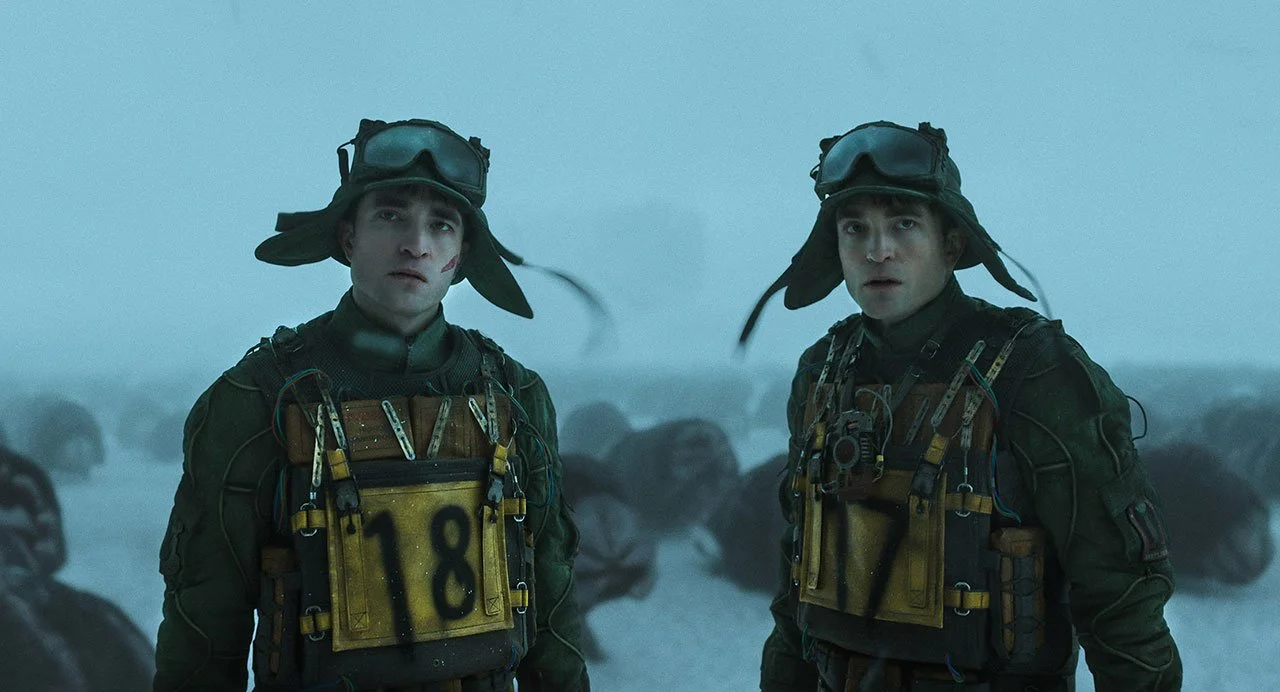Déjà Vu Elevates the Post-9/11 Thriller
Arriving in 2006, lit with dim, sepia-lite filters, and awash in faded digital greens, Tony Scott’s Déjà Vu is immediately recognizable as a product of its era. Yet it’s also far savvier than it has any right to be. It rises above the similar products of the mid-2000s, even if it finally succumbs to their typical failings.
The film opens with soldiers and families boarding a ferry on their way to Mardi Gras celebrations in New Orleans. The film opens with a strong sense of montage and musical juxtaposition in its opening, gradually introducing the confusion central to its plot. The ferry hardly makes it away from the pier before a car bomb erupts, killing and wounding in an unpredictable act of violence. Denzel Washington’s ATF agent Doug Carlin is part of the investigative task force, and he quickly shows his ingenuity in realizing the nature of the disaster as an act of terrorism. A body is also discovered, seemingly connected to the explosion but reported before the actual event.
The search for the perpetrator will be a difficult one, but the government has a trick up its sleeve. Through the use of top secret technology (here suitably indistinguishable from magic), a team of investigators is able to observe the past from every conceivable angle—it’s as if all of reality was being recorded by an infinite number of cameras. Anyone and anything can be observed, even through walls. The only catch is that the technology can only observe approximately four and a half days ahead of time. It is, as one engineer describes, “a single trailing moment of now.”
When they reveal the project to Doug, he can hardly believe it. (There’s even some sly commentary on filmmaking: “How can you change the angle?”) Once he settles his nerves, he strikes an idea: Keep an eye on the woman whose body was discovered just before the bomb exploded. This woman, Claire Kuchever (Paula Patton), must be able to link them to the terrorist. Maybe that will help them catch him before he disappears. As Doug explores the technology, however, it unfolds an even bigger question. Could he possibly save Claire?
As with many time-folded films, Déjà Vu works as a screed against determinism. When Doug won’t accept the inability to change the past, Adam Goldberg’s Denny realizes he’s expanding the conversation outside the realm of cause and effect. “Okay. Something spiritual, right?” “Yeah, something spiritual.” But the film is more interesting as a reflection and critique of the growing, post-9/11 surveillance state. Kilmer’s team explains that the technology was originally developed by the military—and look how quickly it has been turned around to spy on U.S. citizens.
Scott lets the technology be as terrifying as the terrorism. Nearly as soon as Doug understands the technology, he uses it to watch Claire undress in her home. He becomes obsessed with her through watching her, violating her privacy for the sake of saving her. He falls in love through a screen. The film is aware of this tension, which sustains its most fascinating critique. Through this idea, the film internalizes the male gaze, which is at once the technocratic gaze. Doug crosses moral lines while convincing himself of moral certitude; his desire to help becomes a desire of a different kind. The tool is shaped by the user, and the user shaped by the tool—it’s a narrative device that would thrill Jacques Ellul.
There are real, inventive thrills as Scott plays with this conceit. Doug’s investigation has a double-edged nature to it, working in the present and looking for ways to alter the past. The ripple effects in both directions are inventive, and Scott’s directing keeps us grounded as the story grows more complex. The car “chase” in the middle of the runtime is the highlight, expanding in disorienting and thrilling fashion. (If the film predicts the encroaching surveillance of technology, it also occasionally acts as a precursor to the temporal recursiveness of Tenet.)
The film is also eerie in its vision of nationalistic extremism. By 2025, has the imagery of terrorism in America become rote? Homegrown terrorism was an occasion for shock at the tail end of the 20th century. Now it seems unsurprising. The antagonist here is bitter that he was rejected by the military, claiming that “they don’t want patriots.” This is a man “too patriotic” for the armed forces who takes it upon himself to fight a war that is borderline spiritual, thus blamelessly righteous in his mind, no matter how many victims it claims.
When these two critiques collide, they become the movie’s pitfall, for Déjà Vu closes its story too cleanly for real incisiveness. Like so many political thrillers of the post-9/11 era, the film sacrifices privacy to armed security in the name of effectivity. In the end, Déjà Vu baptizes the techno state in the miracle of effectiveness, but that doesn’t nullify the critical lens it brings to its story or the thrills along the way.



